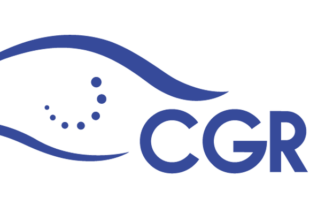The Office of the Public Auditor of Palau and Environmental Resilience

Authors: Sumch R. Chin, Reggie Mabel, Dilrae Mechol, Junior Auditors, Office of the Public Auditor, Republic of Palau
The Republic of Palau entered into two loan agreements for $28 million with the Asian Development Bank (ADB) to fund the Koror–Airai Sanitation Project (the project). The project’s objective was to provide effective, efficient and sustainable sanitation services to the Koror and Airai areas of Palau, and was expected to be completed by 2022. The project included sewage collection, a treatment and disposal system, and consulting services to manage and implement these activities.

The project involved many stakeholders. The Palau Public Utilities Corporation (PPUC), a government “component unit”, was responsible for implementing the project while the Ministry of Finance was the project’s executing agency. The PPUC procured three construction contracts and a consultant to carry out the project.
The Office of the Public Auditor (OPA) conducted an audit at the request of the Palau National Congress and also to address public concern about the project. Persistent project delays that pose a prolonged threat to public health as well as the health of the surrounding marine environment in Koror and Airai, provoked this concern.
Due to the project’s complexity and layers of bureaucracy, the OPA tasked three auditors to conduct the audit, with the assistance of the Office of the Inspector General, U.S. Department of the Interior.
The objective of the audit was to determine to what extent the PPUC:
- planned and managed the project to ensure its completion,
- met the project’s stated milestones and objectives, and
- properly managed the funds to allow for project completion.
The OPA made significant findings related to poor project planning, the PPUC’s inability to meet the project objective, and the PPUC’s lack of capability to manage the project.
PPUC concurred with most of the findings in the audit report. Based on the audit, to expedite the completion of the project and strengthen the capacity of the PPUC, the President issued Executive Order No. 449. This established a project steering committee for the PPUC Reform Program to, among other measures, provide strategic direction, guidance and oversight of the project, and ensure all loan requirements and project objectives are satisfied.
At the time of the reform, however, the PPUC claimed that it had exhausted the ADB loan; thus, additional funding is necessary to continue and complete the project.
Although the project remains incomplete and the threat to public health and the surrounding marine environment persists, water and wastewater rates had already been increased to repay the loans. This situation prompted the National Congress to enact Public Law No. 11-31. This law directs the President to cease any loan repayments and renegotiate the loan agreements with ADB to address the circumstances and disputes surrounding the unfinished project.
Although the people of two of the most densely populated states in Palau await the benefits of this project, the OPA’s audit has, for now, impressed on lawmakers the need to safeguard public funds from further erosion in value. Hopefully, a resolution to a looming environmental and public health disaster will soon arrive.





